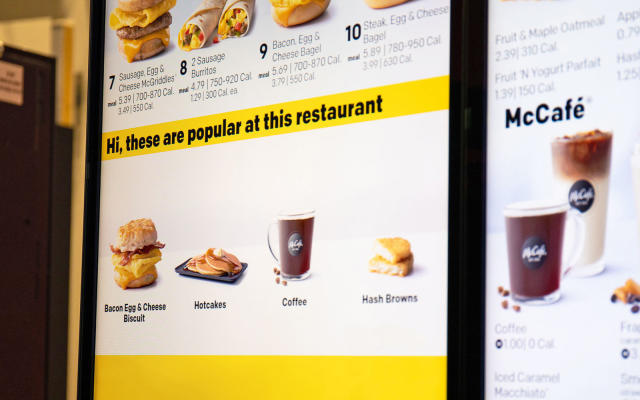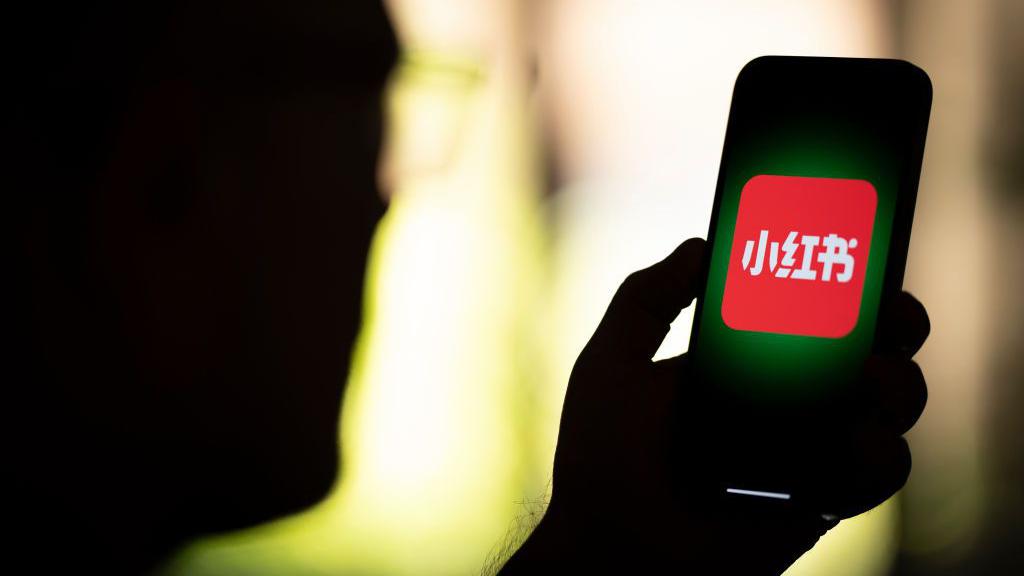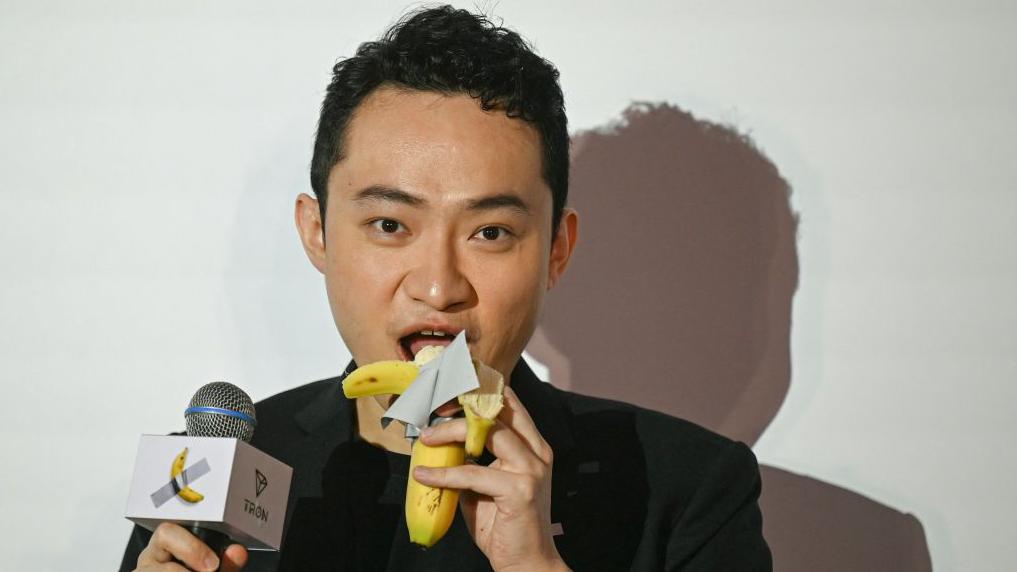Business
AI Drive-Thru Ordering on the Rise Despite Challenges

Restaurants are increasingly looking to artificial intelligence (AI) to manage drive-thru orders and cut labor costs, but widespread adoption of the technology may still be years away. A survey by the National Restaurant Association reveals that 16% of restaurant operators plan to invest in AI, including voice recognition, this year. Major chains, with their larger budgets and capacity for scale, are leading the charge.
Generative AI, fueled by innovations like ChatGPT, is generating buzz in the restaurant industry, which historically has been slow to adopt new technologies. However, a recent setback occurred when McDonald’s ended its trial of Automated Order Taker technology, developed in partnership with IBM, signaling potential challenges ahead. Despite this, experts predict an increase in AI adoption in the coming months and years.
The Future of Voice Ordering
According to T.D. Cowen analyst Andrew Charles, the tipping point for voice ordering technology could be 12 to 18 months away. He anticipates that at least two of the top 25 restaurant chains will expand their trials significantly during this period. He likens this potential shift to the rapid adoption of third-party delivery services following McDonald’s partnership with Uber.
Pros and Cons of AI Ordering
Voice-ordering technology companies claim their AI systems do not replace jobs but rather reallocate workers to other tasks, enhancing operational efficiency. SoundHound, a leader in the field, asserts that its AI can handle over 90% of orders without human intervention, compared to an 80-85% accuracy rate for humans. Additionally, AI can accelerate drive-thru service by approximately 10% and consistently upsell to customers, increasing the average check size.
AI ordering systems could also cater to non-English speakers, offering significant growth opportunities domestically and internationally.
However, there are notable drawbacks. Inaccurate AI orders can cause delays and customer frustration, potentially harming restaurant reputations, as noted by Bank of America Securities analyst Sara Senatore. Furthermore, while younger customers may appreciate the efficiency and reduced human interaction, older generations, particularly baby boomers, often prefer fewer technological options in dining.
Technological Challenges
The technology is not without flaws. Restaurants with poor Wi-Fi need to upgrade their connections, and those near noisy highways may face additional challenges as voice-ordering technology struggles to understand customers. Complex menus can also exacerbate AI difficulties.
Given these issues, some experts, like former Panera Bread CEO Ron Shaich, suggest that restaurants should focus on enhancing the overall customer experience and wait for AI technology to mature.
In summary, while AI drive-thru ordering presents exciting possibilities for the restaurant industry, significant hurdles remain. It may take several years to fully address these challenges and realize the technology’s potential benefits.
Business
US TikTok Users Migrate to RedNote as Ban Deadline Approaches

With a potential TikTok ban looming in the United States, many of the app’s 170 million American users are flocking to the Chinese platform RedNote. Dubbed “TikTok refugees,” these users have propelled RedNote to the top spot on Apple’s US App Store as of Monday.
RedNote, known in China as Xiaohongshu or “Little Red Book,” boasts approximately 300 million monthly users and combines features similar to TikTok and Instagram. It is particularly popular among young urban women in China, Taiwan, and other Mandarin-speaking regions, offering a platform for exchanging lifestyle tips on topics ranging from fashion to relationships.
The app’s growing popularity comes as the U.S. Supreme Court prepares to decide on a law requiring TikTok to sell its U.S. operations by January 19 or face a ban. TikTok has refused to sell, arguing that such a move would violate the free speech rights of its users.
RedNote has embraced its influx of U.S. users, with 63,000 posts tagged “TikTok refugee” providing guidance on navigating the platform and learning basic Chinese phrases. One U.S. user humorously wrote, “To our Chinese hosts, thanks for having us—sorry in advance for the chaos.”
Despite its warm reception, RedNote is not without controversy. Critics point to censorship concerns, particularly regarding criticisms of the Chinese government. Additionally, public officials in Taiwan are restricted from using RedNote due to perceived security risks associated with Chinese software.
As U.S. users join RedNote, some Chinese users have joked about being labeled “Chinese spies,” referencing U.S. officials’ concerns over TikTok’s alleged ties to Chinese government surveillance. However, RedNote has distanced itself from political associations, stating that its name does not reference Mao Zedong’s famous “Little Red Book.”
Business
Bitcoin Hits Historic High of Over $106,000

Bitcoin has soared to a new all-time high, briefly surpassing $106,000 (£83,890) on Monday during Asian trading hours. The cryptocurrency’s unprecedented rally marks a 50% surge since Donald Trump’s victory in the U.S. presidential election on November 5, with market sentiment buoyed by the incoming administration’s pro-cryptocurrency stance.
The Trump administration has signaled a friendlier approach to digital currencies compared to its predecessor. Notably, President-elect Trump recently announced plans to explore creating a national Bitcoin reserve, akin to the U.S. strategic oil reserve, to support the cryptocurrency’s strategic adoption.
Peter McGuire of trading platform XM.com attributed the surge to growing “FOMO” (fear of missing out) among investors. “The Bitcoin rally since the election has been parabolic,” McGuire explained. “Many investors believe $120,000 is achievable by the end of the year, and projections for mid-2025 suggest prices could exceed $150,000.”
Adding to the market optimism, Trump has appointed David Sacks, a Silicon Valley entrepreneur and former PayPal executive, as his AI and cryptocurrency czar. Sacks, known for his close ties to Trump advisor and billionaire Elon Musk, is expected to play a significant role in shaping the administration’s blockchain and cryptocurrency policies.
Business
Justin Sun’s $6.2M Banana and Investment Raise Conflict Concerns Tied to Trump

Chinese crypto entrepreneur Justin Sun, known for his headline-grabbing antics, recently made waves after consuming a $6.2 million banana in an art stunt. Not long after, Sun invested $30 million into World Liberty Financial, a cryptocurrency firm with ties to former President Donald Trump.
The investment proved transformative for the struggling company, pushing it past the threshold needed for Trump to begin profiting from the venture. Trump and his family are now positioned to collect around $20 million, with the potential for more.
Sun, currently facing fraud charges in the U.S. over his own crypto operations, did not elaborate on why he backed the untradable token initiative. However, the move has raised concerns among ethics experts, who view it as an example of how Trump’s vast business interests could create avenues for influence.
Richard Painter, former White House ethics lawyer under George W. Bush, noted the heightened risk:
“The conflicts have grown substantially with the scope of his business empire.”
Trump’s spokeswoman, Karoline Leavitt, dismissed concerns, highlighting that Trump had distanced himself from his real estate empire during his presidency and donated his salary:
“Unlike most politicians, President Trump didn’t get into politics for profit – he’s fighting because he loves this country.”
Critics argue that Trump has not adequately addressed the potential for corruption as his business dealings expand ahead of a possible return to the White House.



















